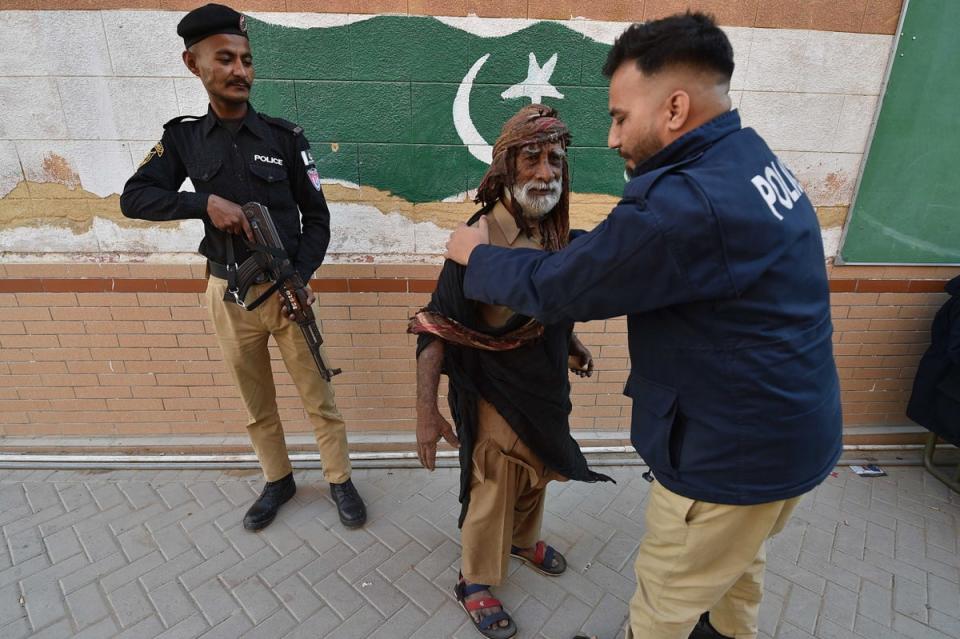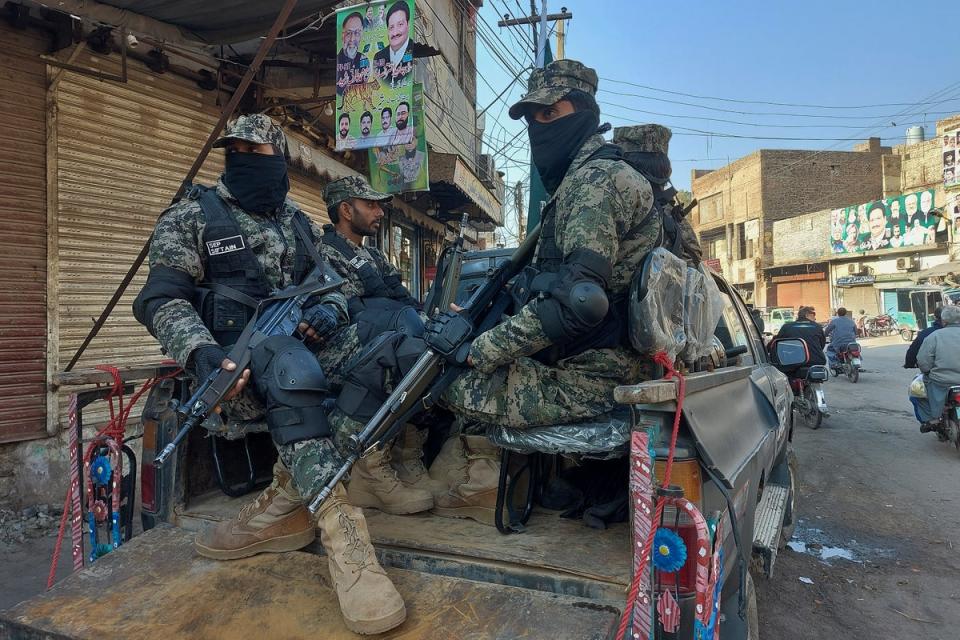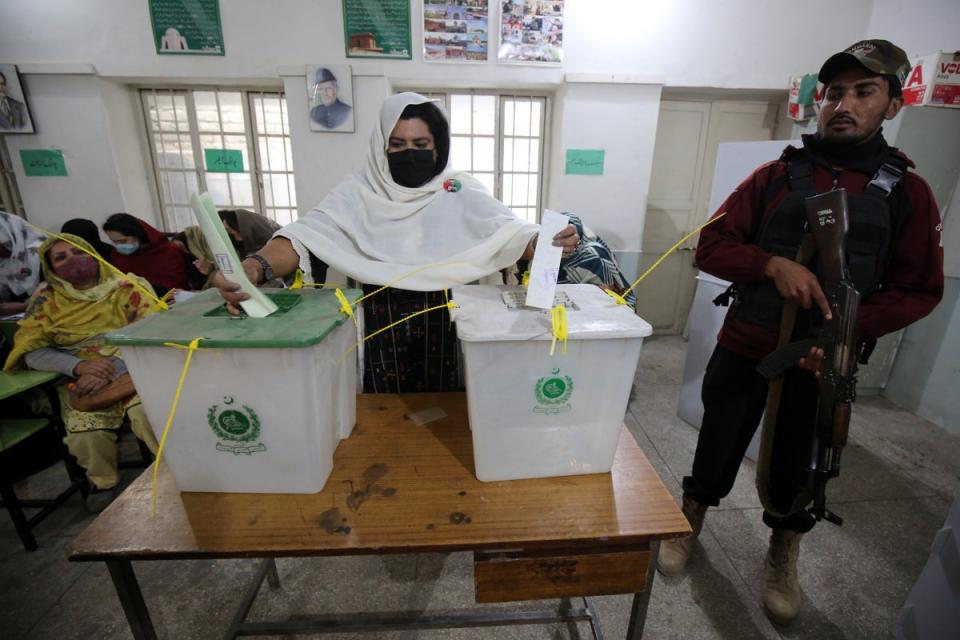Internet and mobile phone services shut in Pakistan in ‘ominous start’ to election day

Mobile phone and internet services have been suspended in Pakistan as millions of voters head to polling booths to cast their votes amid high security cover.
The Interior Ministry announced on Thursday that the decision to “temporarily suspend mobile services across the country” was due to “deteriorating security situation”.
Internet blackouts were effective in “multiple regions of Pakistan in addition to mobile network disruptions”, said Netblocks, a watchdog that monitors cybersecurity and the governance of the internet.
Follow our live blog on Pakistan election
Both calls and data services have been halted, although Wifi networks appeared to be operational.
The elections are taking place in Pakistan almost two years after former prime minister Imran Khan was ousted in a no-confidence vote and remains in jail on various convictions.
A journalist in the capital Islamabad told The Independent that it is a “grim start” to the elections and they were left to rely only on wifi services for their coverage of one the most important days in any democracy.
Another journalist, Haroon Janjua, who is from Islamabad, said the suspension of mobile and internet services is “definitely a hurdle for journalists” covering the elections from the ground and also the transparency of the elections.

“The information to verify the authenticity of the news is limited and we cannot speak to the people and colleagues unless they have a Wifi connection. This is another tactic to stop the mobilisation of the voters,” Janjua said.
Muhammad Shahid, a resident of Peshawar and a journalist by profession, told The Independent: “All mobile phone services are suspended, not just the 4G internet. We are not getting the mobile phone signals on our phones and it will also affect the votes who are trying to confirm their votes through SMS.”
The elections are taking place under high alert with tens of thousands of troops and paramilitary soldiers on duty across the country amid the threat of more violence.

Two blasts rocked election offices on Wednesday, killing around 29 people in the southwestern province of Balochistan.
Analysts have said the crackdown on internet and phone services was “ominous” start to the elections where the powerful army continues to play the major role.
“Pakistan has suspended mobile phone services nationwide, citing security concerns. This is an ominous start to election day,” Michael Kugelman, director of the South Asia Institute at the Wilson Center said.
“The move violates multiple high court rulings since 2018. Security concerns were greater in 2018 and 2013, and I don’t recall a move like this back then.”
Mr Shahid, who was preparing to cast his vote, said the turnout they are seeing this time is considerably lower than what it used to be in the previous election but hopes that more people will come out to vote after noon.

Bilawal Bhutto Zardari, who is the front runner from Pakistan People’s Party (PPP), has demanded that mobile services be restored immediately.
He wrote on X: “Mobile phone services must be restored immediately across the country have asked my party to approach both ECP and the courts for this purpose.”
The Human Rights Council of Pakistan said it was “sad and a cause for concern”.
“ This decision of the government will affect the transparency of the election. Provision of mobile service on voting day is a basic requirement in Pakistan.We request the Election Commission and the Supreme Court of Pakistan to take immediate notice of this issue. Restore mobile service in Pakistan,” it said.
Up to 128 million registered voters are participating in the voting process, with nearly half of them aged under 35. Over 5,000 candidates, among whom only 313 are women, are competing for 336 seats in this election.
The three-time premier Nawaz Sharif of Pakistan Muslim League (Nawaz) and Bilawal Bhutto Zardari of Pakistan People’s Party (PPP) are the two front runner candidates in the elections with former prime minister Mr Khan out of the race.
Candidates backed by Mr Khan, whose Pakistan Tehreek-e-Insaf (PTI) party won the last national election, are also running.
The PTI candidates have said that their chances of winning have been made more difficult as they were barred from using the famous cricket bat symbol in a country where more percentage of people are unable to read and rely on electoral symbols to cast their votes.
Mr Khan, a popular leader who is in jail on corruption charges, is ineligible to run for office. He is currently serving a minimum of 14 years after being convicted in three different cases within a span of five days last week.
According to his legal representatives, Mr Khan still confronts approximately 170 charges across various cases and faces a threat to life. The PTI has accused Pakistan’s influential military of meddling, alleging a fallout between Mr Khan and the military before his decline in popularity.

 Yahoo News
Yahoo News 
